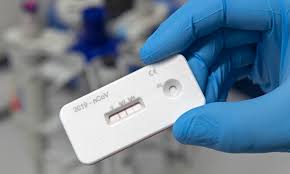Biopharma major AstraZeneca and the University of Oxford on Thursday announced an agreement for the global development and distribution of the university’s potential recombinant adenovirus vaccine aimed at preventing Covid-19 infection from SARS-CoV-2.
The Oxford vaccine is currently undergoing human trials and initial data is expected in May and advanced results by September. But the Boris Johnson government and experts are working to put in place facilities to produce the vaccine on a large scale if it succeeds.
Under the agreement, AstraZeneca would be responsible for development and worldwide manufacturing and distribution of the vaccine.
Pascal Soriot of AstraZeneca, said: “As Covid-19 continues its grip on the world, the need for a vaccine to defeat the virus is urgent. This collaboration brings together the University of Oxford’s world-class expertise in vaccinology and AstraZeneca’s global development, manufacturing and distribution capabilities”.“Our hope is that, by joining forces, we can accelerate the globalisation of a vaccine to combat the virus and protect people from the deadliest pandemic in a generation.”
Alok Sharma, business secretary, added: “This collaboration between Oxford University and AstraZeneca is a vital step that could help rapidly advance the manufacture of a coronavirus vaccine”.
The Oxford vaccine project is among over 80 across the globe working to produce the vaccine, as the death toll and number of cases continue to mount in various countries.Sir John Bell, Regius Professor of Medicine at Oxford, said: “Our partnership with AstraZeneca will be a major force in the struggle against pandemics for many years to come. We believe that together we will be in a strong position to start immunising against coronavirus once we have an effective approved vaccine”.
“Sadly, the risk of new pandemics will always be with us and the new research centre will enhance the world’s preparedness and our speed of reaction the next time we face such a challenge.”
The Oxford vaccine entered Phase I clinical trials last week to study safety and efficacy in healthy volunteers aged 18 to 55 years, across five trial centres in England.
Sir John Bell, Regius Professor of Medicine at Oxford, said: “Our partnership with AstraZeneca will be a major force in the struggle against pandemics for many years to come. We believe that together we will be in a strong position to start immunising against coronavirus once we have an effective approved vaccine”.
“Sadly, the risk of new pandemics will always be with us and the new research centre will enhance the world’s preparedness and our speed of reaction the next time we face such a challenge.”
The Oxford vaccine entered Phase I clinical trials last week to study safety and efficacy in healthy volunteers aged 18 to 55 years, across five trial centres in England.


